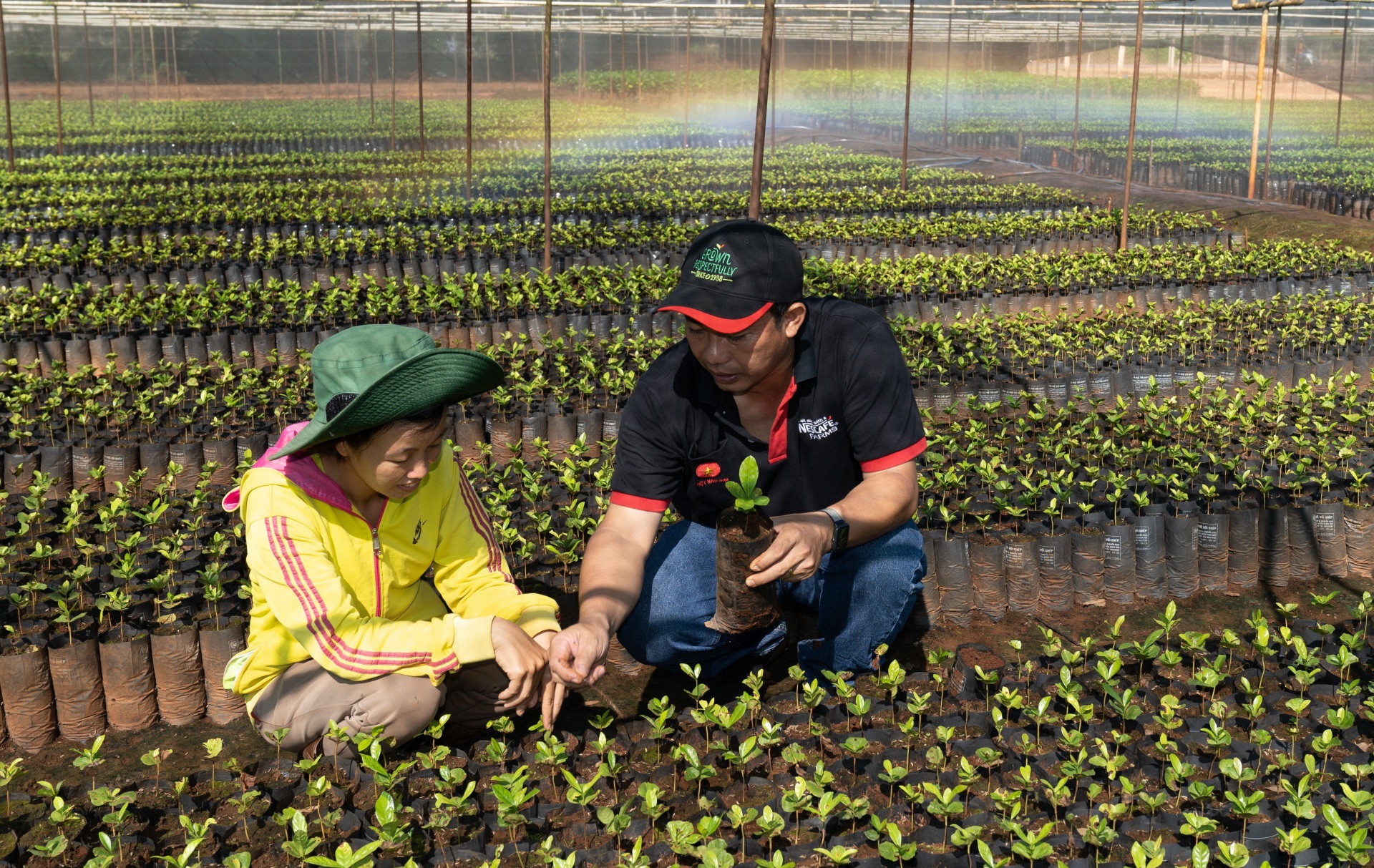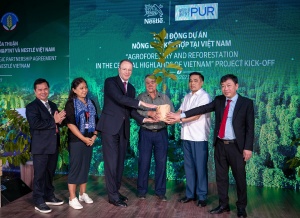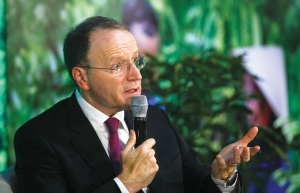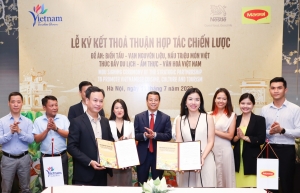Nestle valued at $22.4 billion, named world’s most valuable food brand
 |
Nestlé also has the highest Sustainability Perceptions Value in the Food 100 ranking, valued at $1.35 billion, according to the Food & Drink 2023 report by Brand Finance.
Every year, leading brand valuation consultancy Brand Finance puts 5,000 of the biggest brands to the test, and publishes over 100 reports, ranking brands across all sectors and countries. .
The report points out that Nestlé's ongoing commitment to environmental and social responsibility, responsible sourcing, and nutrition has contributed to its global perception as a sustainable company. Nestlé has made important steps forward to achieve its sustainable development goals.
Specifically, Nestlé is the first company to disclose the nutritional value of its entire global product portfolio, benchmarking against the Health Star Rating system. The brand aims to lead the industry in providing delicious and balanced meals worldwide.
Nestlé is reportedly on track to achieve its net-zero goal by 2025 and publishes a voluntary report on impacts and risks related to climate change. This shows information transparency and its commitment to actions to combat climate change. The group also implements ESG (environmental, social, and governance) initiatives, contributing to providing career development opportunities for young people globally and empowering women in the workplace.
As the world's top food corporation, Nestlé is making efforts to promote the transition to a regenerative food system through partnership with farmers, suppliers, retailers and customers.
In Vietnam, Nestlé is supporting farmers, contributing to the transition to regenerative agriculture in coffee farming in the Central Highlands.
Through the Nescafé Plan implemented in the Central Highlands since 2011, Nestlé and farmers have implemented many initiatives that contribute to improving the quality of Vietnamese coffee beans, preserving soil and biodiversity, reducing the impact of climate change, promoting biodiversity, and increasing income for farmers.
Towards realising the net-zero goal, Nestlé strengthens cooperation with ministries, specialised units, business partners, and farmers to jointly implement initiatives to reduce emissions throughout the entire value chain, from input materials, production to post-consumer product packaging.
Green coffee beans in Vietnam are purchased responsibly by Nestlé through Nescafé Plan. This initiative has helped farmers save 40 - 60 per cent of water used for irrigation in coffee farming, and reduced the amount of fertilisers/pesticides by 20 per cent.
Since 2015, all of Nestlé Vietnam's factories have achieved the goal of "No solid waste landfilled in the environment".
In 2022 alone, thanks to initiatives to reuse, recycle and circulate water, Nestlé Vietnam factories saved more than 240,000 cu.m of water in production.
All coffee grounds are reused as biomass fuel for boilers in coffee production, helping reduce an average of more than 14,000 tonnes of CO2 emissions and save $2.24 million in fuel costs each year. By the end of 2022, nearly 90 per cent of Nestlé Vietnam's product packaging was designed to be recyclable and reusable.
Thanks to its continuous efforts to bring nutritious products that are good for the health of users and build sustainable regenerative food systems in Vietnam, Nestlé was honoured as the most sustainable enterprise in the manufacturing sector for two consecutive years of 2021 and 2022.
 | Nestlé Vietnam strengthens collaborations in sustainable agriculture Nestlé Vietnam has signed an agreement with the Ministry of Agriculture and Rural Development (MARD) to support the country’s transition to regenerative and low-emission agriculture. The new, three-year partnership will help the move to sustainable agriculture and achieve the 'net-zero by 2050' target. |
 | Nestlé’s regenerative agriculture commitment Nestlé Vietnam signed an agreement with the Vietnamese Ministry of Agriculture and Rural Development in June to encourage the country’s transition to regenerative and low-emission agriculture and help the country move towards sustainable agriculture and achieve its 2050 net-zero targets. VIR’s Bich Ngoc talked with Mark Schneider, CEO of Nestlé Group, about the strategies required to carry this out. |
 | Nestlé aims to promote over 50,000 Vietnamese dishes Nestlé Vietnam's Maggi brand has signed an MoU with the Tourism Information Centre and the Vietnam National Administration of Tourism (VNAT) to carry out activities that will promote tourism to Vietnam with a focus on the country's unique cuisine from now until 2026. |
What the stars mean:
★ Poor ★ ★ Promising ★★★ Good ★★★★ Very good ★★★★★ Exceptional
Related Contents
Latest News
More News
- Mondelez Kinh Do renews the spirit of togetherness (February 06, 2026 | 09:35)
- Seafood exports rise in January (February 05, 2026 | 17:31)
- Accelerating digitalisation of air traffic services in Vietnam (February 05, 2026 | 17:30)
- Ekko raises $4.2 million to improve employee retention and financial wellbeing (February 05, 2026 | 17:28)
- Dassault Systèmes and Nvidia to build platform powering virtual twins (February 04, 2026 | 08:00)
- The PAN Group acquires $56 million in after-tax profit in 2025 (February 03, 2026 | 13:06)
- Young entrepreneurs community to accelerate admin reform (February 03, 2026 | 13:04)
- Spring Fair 2026 launches national fair series (January 30, 2026 | 16:17)
- SnP celebrates 10th anniversary with new brand identity (January 30, 2026 | 14:41)
- Sci-tech sector sees January revenue growth of 23 per cent (January 30, 2026 | 11:20)

 Tag:
Tag:




















 Mobile Version
Mobile Version